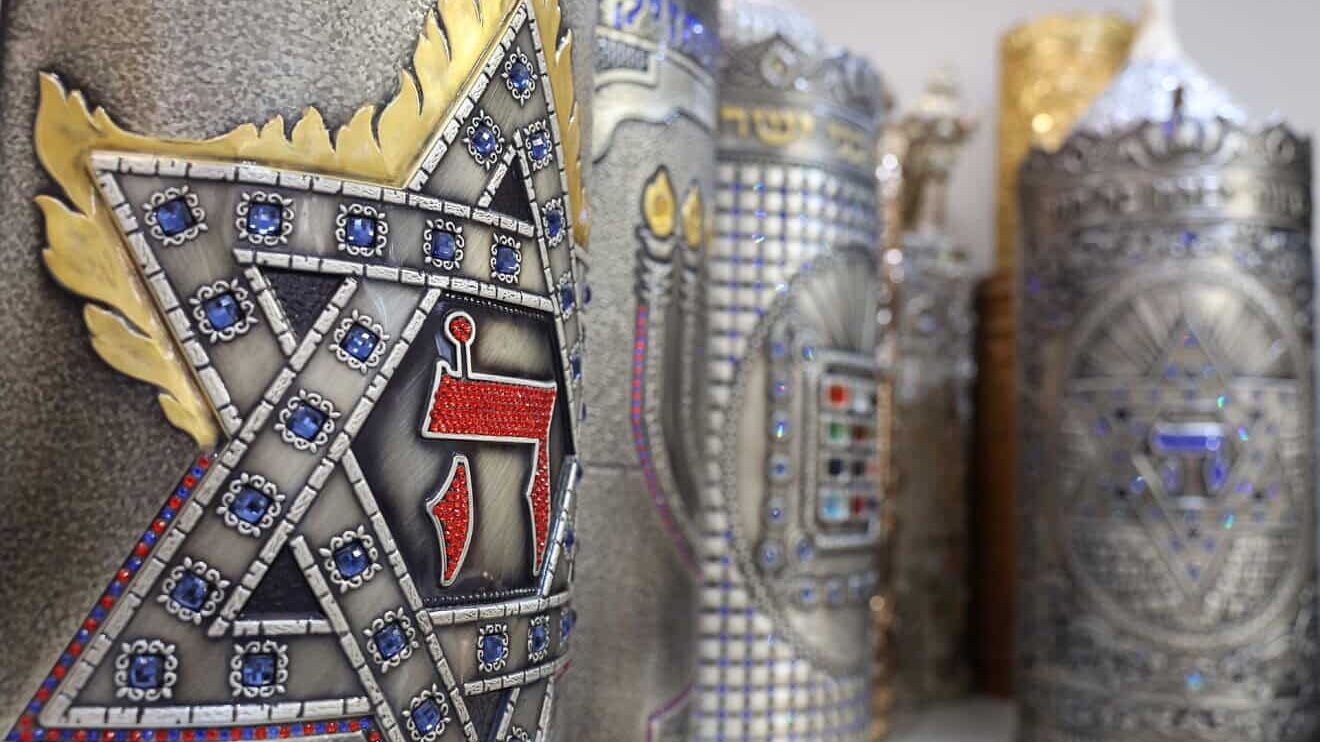(JNS) On a visit to the zoo, a fellow went to see the Ape House. There sat a gorilla holding two books, one in each hand. In his right hand, he held a Bible, and in his left hand a copy of Darwin’s Origin of the Species.
“What’s with the books?” he asked the gorilla.
“I’m trying to figure out if I’m my brother’s keeper or my keeper’s brother.”
Who are we descended from, Adam or the apes? As someone once quipped, “If you prefer the genealogy of a gorilla for your family tree, you’re very welcome. As for me, I’ll take Adam and Eve any day.”
People respect science. And for the many millions of believers in the biblical version of creation, this has been a difficult philosophical problem to reconcile. So, as we prepare to begin anew the biblical story of Genesis this Shabbat, I thought it appropriate to share my one of my favorite insights and explanations of the seeming contradictions between the creation story and the theory of evolution.
When I was a student and searching for the answers, this rather simple approach satisfied my questioning mind. I share it now in the hope that it may bring some clarity for you as well.
One of the main difficulties in reconciling Genesis and Darwin is the age of the world. Science and carbon dating determine the world to be many millions of years old. According to the biblical version, we have just entered the year 5786 from creation.
But let us consider that Adam and Eve were not created as newborn infants but as mature young adults. (I mean, who was there to change their diapers?) The Midrash (Bereishit Rabbah 14:7) quotes Rabbi Yochonon as saying that they were created with the characteristics of 20-year-olds.
We have every reason to presume that just as the first humans were created as mature adults, so was the rest of the world. The rock was a mature one. The tree was fully grown, not a seed or sapling. Had the scientists been in the Garden of Eden in that first week and attached electrodes to Adam and Eve to determine their exact age, they would have pronounced them 20 years of age. Had they done their carbon dating, they would have no doubt pronounced the rocks to be millions of years old, then and there. In fact, the rock was only one day old, but most importantly, it had the characteristics of being a million years old.
Thus, there is really no contradiction between religion and science. Science speaks of the properties and characteristics of rocks and trees. Torah speaks of their actual age. With this understanding, we actually don’t need to resort to those stretches of interpretation that a day in the Bible is really a thousand or a million years.
The fact is that Torah and Science are never at loggerheads. Whether Albert Einstein was a believer or not may be a matter of opinion, but he did say that “science without religion is lame, religion without science is blind.”
Long before Einstein, Socrates humbly stated that “the more I know, the more I realize I know nothing.”
Recent discoveries by nuclear physicists, including such revolutionary revelations as the Big Bang theory, black holes and even the “God Particle,” are all pointing in the direction of a Creator who is behind all these cosmic commotions. Never before have the most eminent scientists been on the same path as the believers in acknowledging the role of a Higher Being in the creation of the universe.
In general, science and religion have completely different roles that do not oppose each other. Science says how things work. Religion tells us why. Why is there a universe in the first place? What is the purpose of it all? Why were man and woman created?
We believe that God created the world and put us here for a purpose. And it’s not just to overcome antisemitism either. We are here to partner with the Creator in making His world a better place for everyone, physically and spiritually. Creation is not random but purposeful. Human beings are not just here for the ride—and to see who has the most fun or the biggest stock portfolio at the end.
As we begin the Torah once again, may we be inspired to lead lives of purpose and meaning, thereby fulfilling not only the grand higher purpose but also the unique reason for which each of us was created.
Want more news from Israel?
Click Here to sign up for our FREE daily email updates














